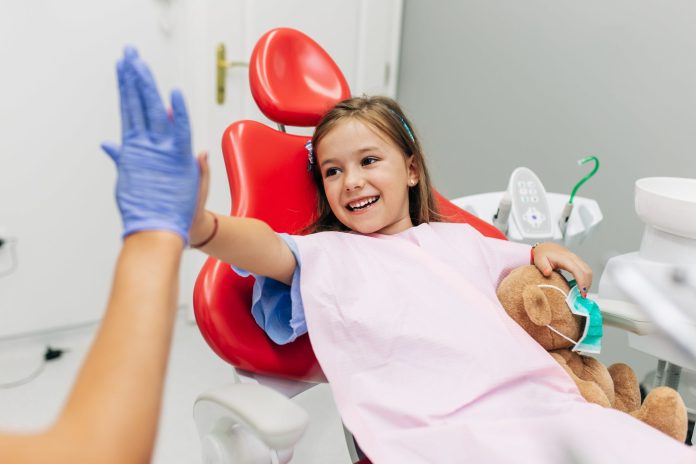Teaching kids good dental hygiene is important for their well-being. You want to set them up for a lifetime of healthy smiles. As a parent, you need to make brushing and flossing a daily routine. You’re not just protecting their teeth from cavities. You’re also teaching them responsibility. When you focus on proper techniques early, you help them avoid pain and discomfort later. Start with simple steps. Use a soft-bristle toothbrush and a pea-sized amount of toothpaste. Make it fun by brushing your teeth together. Songs or a timer can help keep things engaging. Explain that dental visits are a part of keeping teeth strong. If you’re near Gainesville, dentistry for children Gainesville GA offers resources tailored for young patients. Building these habits is an investment in your child’s future. You want them to appreciate their smile and keep it healthy.
Start Early
When it comes to dental care, starting early makes a difference. Even before your child’s teeth appear, clean their gums with a soft cloth. This removes bacteria and prepares them for brushing. As soon as the first tooth appears, begin brushing using a baby toothbrush. The earlier you start, the easier it becomes to make it a habit.
Make Brushing Fun
Children enjoy activities that feel like play. Make brushing fun by using colorful toothbrushes or toothbrushes with characters. Play a favorite song during brushing to keep them motivated. Use a reward chart to track their progress. Small rewards encourage them to keep up the good work.
Teach Proper Technique
Show your child how to brush properly. Hold the toothbrush at a 45-degree angle to the gums. Use gentle, circular motions. Encourage them to brush every surface of the tooth. Demonstrate how to brush the tongue to remove bacteria and keep breath fresh. Practice together until they feel confident.
Introduce Flossing
Flossing is as important as brushing. It removes food particles and plaque between teeth where a brush can’t reach. Begin flossing when your child’s teeth start to touch. Use child-friendly flossers to make it easier for small hands. Show them how to gently slide the flosser between teeth and curve it around each tooth.
Schedule Regular Dental Visits
Regular check-ups are a part of good dental hygiene. They allow dentists to catch problems early and provide professional cleaning. Schedule the first dental visit by your child’s first birthday. After that, aim for a visit every six months. Check with local resources like the Healthy Kids Dental Program for accessible care options.
Lead by Example
Children learn by watching you. Be a role model by maintaining your own dental hygiene. Brush and floss together to show that it’s a priority for everyone. Talk about the benefits of good dental care, such as avoiding cavities and having a bright smile.
Understanding Toothpaste Use
Choosing the right toothpaste helps protect your child’s teeth. Use fluoride toothpaste to strengthen enamel. For children under three, use a smear the size of a grain of rice. For children over three, use a pea-sized amount. Supervise their brushing to ensure they spit out toothpaste and avoid swallowing.
Encourage Healthy Eating
Diet affects dental health. Limit sugary snacks and drinks, which can lead to cavities. Encourage fruits, vegetables, and dairy products for a balanced diet. Water is the best drink for teeth, especially fluoridated water, which helps prevent decay.
Monitoring Dental Development
Understanding your child’s dental development helps you know what to expect. Below is a simple table outlining the typical timeline for teeth appearance:
| Age | Teeth Appearance |
|---|---|
| 6-10 months | Lower central incisors |
| 8-12 months | Upper central incisors |
| 9-13 months | Upper lateral incisors |
| 10-16 months | Lower lateral incisors |
| 13-19 months | First molars |
| 16-23 months | Canines |
| 23-33 months | Second molars |
Using these tips, you guide your child toward healthy dental habits. Invest time and effort now to prepare them for a lifetime of strong and healthy teeth. Your encouragement and education make all the difference. Empower them to take charge of their dental health with confidence.






